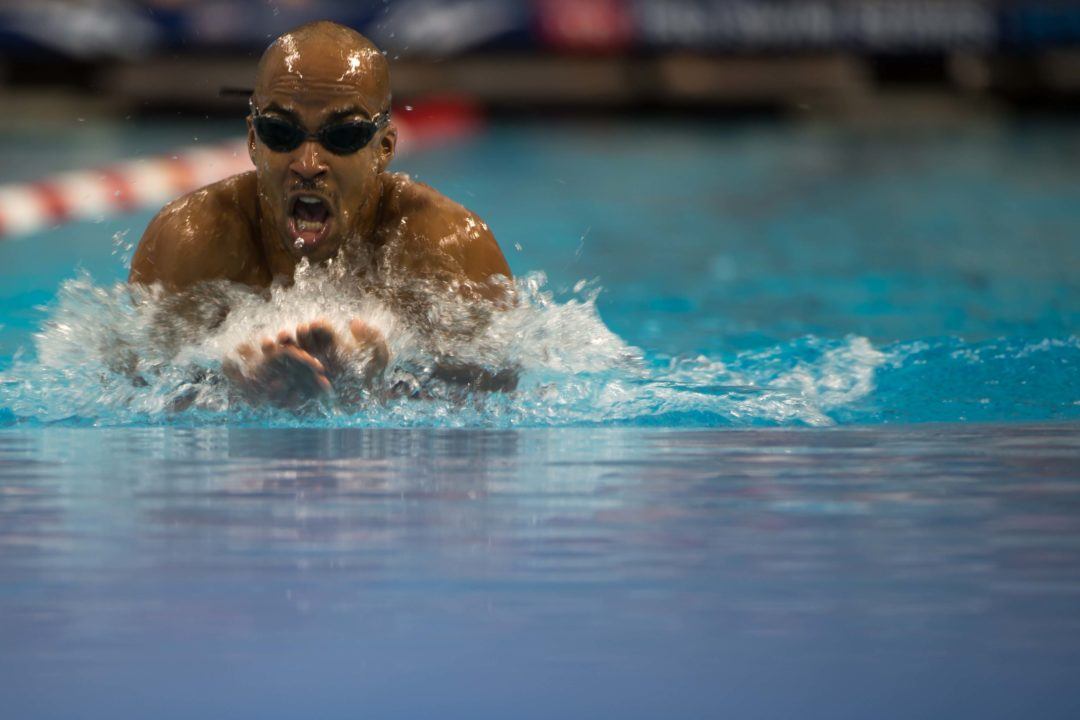Siphiwe Baleka is set to become the oldest swimmer in Olympic history in Tokyo after being selected to compete for the West African republic of Guinea-Bissau on June 17.
Baleka, 50, was born and raised in the United States (Oswego, Ill.) and went to Yale as a collegiate swimmer before attempting to make the U.S. Olympic team for the 1992 Games in Barcelona—then under the name “Tony Blake.”
Since then, in addition to adopting his new name “Siphiwe Baleka” from tribal elders in South Africa, according to Sports Illustrated, Baleka has been a truck driver and a 13-time U.S. Masters Swimming national champion. He currently resides in Springfield, Mo.
On June 10, Baleka officially became a dual citizen of both the U.S. and Guinea-Bissau, following the Council of Ministers of the Government of Guinea-Bissau completing his “naturalization process.”
In addition to being the oldest Olympic swimmer ever, Baleka will also be the first from Guinea-Bissau, which has never sent more than five athletes to a single Games. The team will not be sending a female swimmer.
Baleka will be allowed to compete under the universality rules put in place by the IOC and FINA to allow smaller nations and those developing swimming programs to send athletes to the Games.
Due to the one-year postponement of the Tokyo Olympics, universality selections simply needed approval from FINA, rather than having to compete at the 2019 World Championships, which was a requirement before the pandemic delayed the Games.
Universality selections are put in place to give swimmers from the smaller and under-developed countries an opportunity to compete on the biggest stage. In this sense, Baleka is taking advantage of the system, finding any and all loopholes to compete at the Games.
Baleka’s tie to Guinea-Bissau comes from “genetic testing which determined that his paternal ancestors descended from the Balanta people of Guinea-Bissau,” according to the official press release on Guinea-Bissau’s announcement. “Mr. Baleka is the first ‘Afro-descendant’ from the United States to receive citizenship in Guinea-Bissau based on DNA results, and will be the first such athlete to compete for his ancestral homeland.”
According to the USA Swimming’s database, Baleka has three long course 50 free swims on record during the 2020-21 season in February, all ranging between 25.20 and 25.53. In the 100, he has a pair of 55.9s from the same meet.

Siphewe’s ancestors likely didn’t come to the US willingly. The article ought to say he currently lives in Guinea-Bissau, not MO. Go Siphewe!
If you want learn a little more about this guy, this short film is a good place to start.
https://vimeo.com/119291674
Before, the Olympics was something money couldn’t buy. Looks like I should do some 23&Me or even better, see if Dominica or the Dem Rep of Congo would sell me a passport since passport buying is a thing for the right price.
Well now, this guy’s got nothing on Jerry Atric. Regardless, good on him; he’s cookin’ with honey..!!
I know plenty of 50 year olds who are doing less meaningful things with their lives
No argument that he’s a talented swimmer, I’ve followed he’s journey through his social media posts , but to be honest I don’t agree with what he has done. He should rather be trying to help the countries youngsters get to the Olympics. It’ll be interesting to see how long he stays in Guinea-Bissau 🇬🇼 after the Olympics and if he’s going to be proud to represent 🇬🇳 for the remainder of his Masters swimming career?
As Thurston Howell would say, “Good heavens! A Yale man!!”
https://www.youtube.com/watch?v=tCCCN-3NJiU
Americans have a nationalism problem, I swear to god. And especially the swimming community. Get over yourselves.